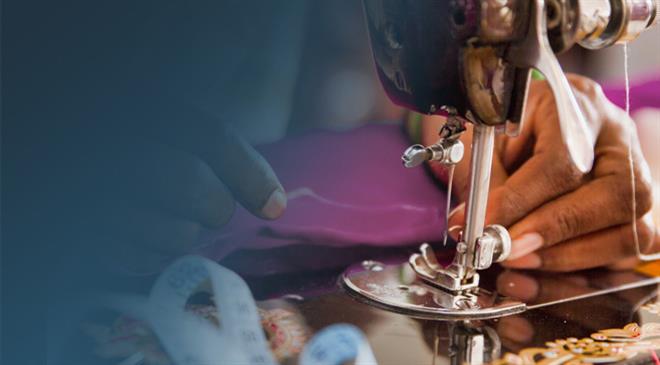Blockchain technology today represents a paradigm shift
Everledger is an independent technology company that helps businesses surface and converge asset information, using secure technologies including blockchain, AI and IoT. Leanne Kemp, founder and CEO of Everledger, discusses with Paulami Chatterjee, the role of blockchain in tracking supply chains of various industries by ensuring transparency at each step, and how Everledger is trying to unlock new growth opportunities in this niche.
Many people believe that blockchain will eventually make or break supply chains. Do you think it is an overstatement which will change the game altogether or do you think blockchain can do many more things considering whatever little is being talked about?
Blockchain is an incredibly resourceful technology: it can be used for things as diverse as cryptocurrencies, supply chain track and tracing and non-fungible tokens (NFTs). Our work is focused on the supply chains of specific industries, such as fashion, wool, wine, diamonds. The food supply chain, and all our supply chains, are adapting to shifts in demand of a magnitude only those old enough to remember World War II (WWII) have seen before in their lifetimes. Our supply chains are not broken - they are adapting to new local and global realities.
Down to its core, blockchain is all about trust: the truth is in the code. By having a base from which people can build trustful relationships with one another and the items they buy, such as ensuring a piece of clothing is authentic even though it is not being sold at a trusted store (as in second hand purchasing), a whole new economy is born. We see this as empowering the fashion industry immensely, and pioneers such as Alexander McQueen's MCQ label are already making full use of the technology. One hundred thousand clothing items are on the blockchain platform we have built for them, MYMCQ - literally every single garment of their collection.
When you think about the opportunities this will bring to the industry, brands just cannot afford not to immerse themselves into applications of blockchain such as ours. It's just too risky not to try. Back in the 1990's, could you stop the internet from growing to where it is now? No… Blockchain technology today represents the same paradigm shift.
Do consumers really care about supply chain transparency down the line? Isn't there a need to educate the end consumer too?
The concept of supply chain transparency was virtually unknown 15 years ago, yet today it commands the attention of mid- and senior-level managers across a broad spectrum of companies and industries. The reasons for this increased interest are clear: companies are under pressure from governments, consumers, NGOs, and other stakeholders to divulge more information about their supply chains, and the reputational cost of failing to meet these demands can be high.
Supply chain transparency requires companies to know what is happening upstream in the supply chain and to communicate this knowledge both internally and externally.
One reason the process has become increasingly important is that more consumers are demanding it. Consumers may be willing to pay 2-10 per cent more for products from companies that provide greater supply chain transparency. Consumers value information about the treatment of workers in a product supply chain and the seller's efforts to improve working conditions. Across industries, this growing segment of discerning consumers seeks information on product ingredients and materials, where products come from, and the conditions in which they were produced.
Millennials and gen z consumers will soon make up 50 per cent of all consumers, and they are renowned for demanding high standards from the brands they purchase. We are seeing this from the partners that reach out to us - one of the key drivers for engaging with us is that their customers are demanding higher levels of transparency and sustainable practices - social, economic and environmental. Gone are the days when brands could rely solely on their glossy advertising campaigns. They now need to demonstrate they are responsible in absolutely everything that they do.
Any guidelines that a company like yours provides to the various stakeholders of the supply chain?
Having ascertained where your organisation falls on the transparency continuum, the next step is to decide whether you need to invest in efforts to move the organisation up the scale.
If the answer is yes, the strategy you lay out for improving transparency will depend to a large extent on your risk profile and what questions you want to answer with the information you seek. For instance, do you want to ensure no child labour at your contract manufacturers or identify the source of origin of your materials?
We don't see ourselves as a certifying agency - we "merely" evidence the provenance, characteristics, chain of custody and business practices that entail our partners' supply chains. I say "merely" half-jokingly because it entails a myriad of complex work, for which even AI is utilised.
Everlegends work around the clock globally to ensure we can be "the digital transparency company", providing ever more knowledge for consumers to make the right decisions. We provide the evidence, cross referenced and securely stored, in a very easy-to-experience way, so consumers can have all that wealth of information on their mobile screen whenever they are shopping.
While blockchain and other technologies have been hailed as the solution to supply chain transparency, any viable solution must include the right mix of people, information, and technology to support outlined objectives - a technology cannot solve this issue in isolation. For instance, internal and external stakeholders should be involved, and the technology deployed should include solutions that capture, translate, and disseminate useful data, as well as support appropriate decision making.
Beyond cryptocurrencies and fintech, why are companies slow in adopting blockchain? What can be the reasons?
The current state of blockchain can only be compared to where the internet was in the 1990s. This means blockchains at the moment are tempered on scaled performance and full of complicated processes that make mass adoption difficult. Just as the internet was underrated in the early 1990s, nobody can accurately predict blockchain's impact. Even then, everyone is eager to know when the technology will hit its tipping point for mass adoption.
As with every new technology, there will be early adopters and laggards. We've been one of the first companies founded with the mindset of connecting complex supply chains using blockchain and a symphony of other technologies. Blockchain in isolation will not solve the challenges of the industry. So, we developed the Everledger platform, which uses AI, NFC, and other Internet of Things (IoT) technologies to evidence the lifetime story of any object. We started with diamonds back in 2015, and since then we have been growing to other industries. One of the latest is the tracing of merino wool for Australian Wool Innovation (AWI).
In just a little more than 5 years, we have been fortunate to work with many partners in all corners of the world, from New York to Shanghai, London to Sydney. I see an inexorable movement from brands into our space, for consumers are demanding transparency from big brands. It's not enough anymore for brands to simply say they are sustainable. Consumers want to see the proof. And through the Everledger platform, they can see the evidence of where the product came from, who worked on it across the value chain, they can see proof of the characteristics of that product, and when it changed hands. This is fundamental for re-commerce for example, or items that are frequently counterfeited. Fashion items, luxury, and spirits are good examples. We recently launched a partnership with the University of Glasgow to ensure the authenticity and security of fine whisky.
Throughout our 5-year journey with customers and the underlying technology, there is a great need to implement easy-to-use, plug-and-play user interfaces (like existing mobile and web applications) while speeding up performance to allow various people to get comfortable using and developing blockchain applications.
Apart from the above-mentioned challenges, proof-of-work blockchains still have to achieve efficiency in terms of energy consumptions. Other hurdles include achieving interoperability and establishing standards for collaboration to speed up development.
The public's faith in blockchain value, plus additional clarity in regulation and increased scalability are the three most important factors that will drive mass adoption. Hopefully, all these challenges can be addressed with time for mass adoption to occur.
Does your solution cater to all kinds of customers whether big or small? What does your feasibility study involve?
Yes, there is no minimum threshold - companies that want to evidence their sustainability claims to demanding end consumers, or want to display the provenance of their products (for example the origin and characteristics of a fine bottle of wine), or even those that want to enhance the user experience for their customers, as the platform we develop is accessible on any mobile phone without the need for downloading an app, all will benefit from the Everledger platform.
We are currently working on onboarding companies seamlessly, through easy APIs, so that they can benefit from the platform effortlessly. That is relevant especially for small medium businesses (SMBs).
How would your new solution help in better tracing of wool for AWI?
Our work with Australian Wool Innovation (AWI) aims to track and trace the supply chain of Australian merino wool from farm to the end consumer. Our partner wants to demonstrate merino authenticity throughout the processing phases, as well as showing its sustainability and biosecurity compliance to end consumers and retailers.
This is a beautiful project, as it is deeply rewarding for us to see farmers and small businesses benefitting from cutting edge technology, especially at such a challenging time for businesses due to Covid. We hope that this enhanced transparency into this value chain will support these small producers and retailers across the world.
Perhaps the most obvious benefit is compliance with increasingly stringent regulation. Transparent supply chains also reduce reputational risk and enhance the company's standing as a trustworthy enterprise. A third benefit is attracting and retaining employees who are keen to work for responsible companies.
Finally, there are important operational benefits too. Gathering more detailed information on supply chain performance helps companies identify opportunities for improvement such as unnecessary middlemen and to plan more effectively over the long term.

What are the upgradations you might have done to your blockchain platform to better adapt to the post Covid world?
Luckily, we were already very well positioned to work remotely when the pandemic struck last year, and our product is perfectly positioned to enable companies to create a differentiating factor in their markets. So, I must say that not much had to change in the way we do business today.
Supply chain transparency relies on creating a culture of continuous improvement within the organisation and across value chains. The demand for transparency is unlikely to abate. Today, it may not fall under anyone's job description, but it soon will.
It is a key concern of mine as CEO to make sure all Everlegends are well and safe, and we have put in place some special arrangements to ensure flexibility for example for people with kids. We have even given additional mental health support through additional annual leave. Happy people collaborate and produce more and better!
How many textile customers do you have as on date? Which are the big names?
Two key customers that we can disclose publicly are MCQ, part of the Kering Group, and AWI, the parent organisation for The Woolmark Company.
We are most excited about sustainable fashion and working with big and small brands alike who are going mainstream with announcing collections using recycled plastics or other synthetic materials. And some brands are going further by implementing upcycling in their annual collections. The main difference between upcycling and recycling is that upcycled clothes have been repurposed from existing clothes whereas recycled clothes are made from materials that have been broken down first. Upcycling is good news for the environment as clothing has the fourth largest environmental impact.

Blockchain is a tool to arrest digital thefts and counterfeits. Are there regulations required for blockchain itself? How are different countries dealing with this?
Blockchain records are immutable, and extremely difficult to hack, due to its distributed nature. This certainly provides the basis for optimal levels of traceability - and the last thing a malefactor wants is to be traced. Also, being decentralised, there is no single point of failure, so the records have an extra protection when compared to normal databases stored by a single party. Everledger also has been awarded the ISO27001, the highest degree of information security.
With the advent of blockchain technology and associated smart contracts, code is assuming an even stronger role in regulating people's interactions over the internet, as many contractual transactions get transposed into smart contract code. We are seeing efforts to bring about legislation from several entities, and we actively participate in several of these conversations: I co-chair an initiative with the World Economic Forum and am also part of the OECD's blockchain advisory board. With my previous role as Queensland chief entrepreneur, I remain part of Australia's national blockchain roadmap. I believe that good legislation is legislation that protects consumers, grants governments the levers for good public policy, and enables businesses to thrive. Especially now, as the world is trying to recover from the pandemic, we need public-private conversations to take place and enable those goals to succeed.
What has been your growth story? What are your future plans? Any new collaborations in pipeline?
The problem we're faced with is that the world's provenance is locked in paper. The identity, ownership, and authenticity of the goods we purchase are provided through paper documentation that is untraceable and easily susceptible to tampering and fraud.
In the world of luxury goods and fashion, provenance is everything. When provenance is broken, we start to see cases of fraud, theft and crime along global supply chains which cost insurers $51 billion in fraudulent claims and helps contribute to the $1.7 trillion counterfeit market that helps fund terrorism, cartels and black markets globally.
As a solution to all this, and to foster transparency in terms of sustainable social and environmental corporate practices, I created Everledger back in 2015, when no one was talking about these things and blockchain was in its infancy. As a scale-up company we have moved past early-stage barriers, demonstrating a track record of high growth, and showing potential for long-term success. Our current scale-up stage is trying to unlock new growth opportunities, access new markets, expand our team, and build upon Everlegends' core strengths.
Our solutions are built on not only advanced technology, but also deep knowledge of industries. We work together with partners to increase their value - more responsibly, more sustainably and more efficiently. Everledger works with stakeholders in diamonds, gemstones, fine wine, luxury goods and e-waste management to meet society's expectations for sustainable, verifiable sourcing. We are seeing increased demand for battery lifecycle management, be it in portable electronics or electric vehicles.
There are several announcements of new collaborations in the pipeline - stay connected with us on our social channels as we constantly work towards our vision of a Sustainable Global Economy in which material, value and information are integrated and circulate together.



